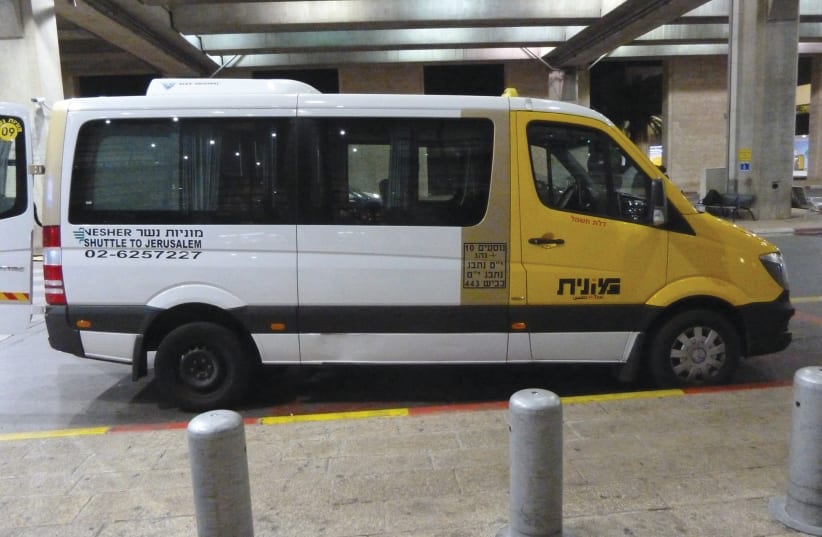Out and about again
The Bible Lands Museum recently hosted Café Europa, a social club for Jerusalemite Shoah survivors – one of the first in-person outdoor activities since the beginning of the pandemic for those involved. The members of the club, which is supported by the Jerusalem Foundation and the municipality and operated through the Ginot Ha’ir local council, enjoyed a private guided tour of the museum’s galleries and a musical intermezzo. All the survivors received gifts specially prepared by museum staff.
Cornering corona
As of this past Sunday, nearly half a million Jerusalemites had been inoculated since the beginning of the city vaccination program. On the same day, according to Health Ministry data, 2,482 Jerusalemites were still ill with various stages of coronavirus. There were 36 new cases of corona this week – 17 of them in Arab neighborhoods, 16 in the general sector and three among haredim. As of now, only Kafr Aqab and Ras el-Amud are still marked as red neighborhoods.
What a waste
Based on recommendations from experts and following protests of local residents, Mayor Moshe Lion canceled the planned waste sorting facility at the Og River site, near French Hill and Isawiya. Jewish and Arab opponents felt the planned facility would harm air quality and endanger residents’ health. The new proposal is to build at an alternative site based on the best environmental and green principles, also addressing the problem of the illegal building debris frequently dumped there.
No Nesher now
For decades the Nesher shuttle was one of the most affordable – albeit with drivers known to be among the grumpiest – ways to get from Jerusalem to Ben-Gurion Airport. Then came the high-speed train, the convenient 485 bus line and coronavirus – and the taxi service was shut down.
Things got so bad that members of the company, a cooperative, have been asked to share their part of Nesher’s heavy debt; the company’s future appears gloomy.
Now that the airport has reopened and the coronavirus siege is lightening, Jerusalemites will again need to get to the airport to fly, but it is not clear if any of Nesher's 30 mini-buses/vans will resume the service.
El Ninio
Moshe Ninio, a legendary cameraman and one of the first staff members at the original Channel One TV (now Kan 11) died this week of heart failure at age 80. Ninio was present at some of the country's most important events and documented through his lens numerous significant events, such as the visit of Egyptian president Anwar Sadat and the signing of the peace treaty between Egypt and Israel.
Born in Turkey, Ninio made aliyah with his family in 1949. He fought in the Six Day War and the Yom Kippur War, before joining the initial group of cameramen and journalists who founded the first channel in 1968.
One of his career peaks as a cameraman was during the 1977 election, when he covered Menachem Begin and the Likud campaign. He was one of the few at the channel to support a right-wing political party then.
During the 1970s Ninio was a regular customer at the legendary Ta’amon coffee shop on King George Avenue frequented by journalists, left-wing activists and artists.
Zoom for whom?
Another hopeful sign that our pandemic journey may be nearing an end is that the Hebrew University has announced that frontal courses will resume in all faculties right after Passover. For now, only those with a green passport or a recent negative test will be granted entry to the campuses. For all other students, the university will provide access through Zoom for compulsory courses only.
Pandemic pandemonium
A group of Mea She’arim residents has set up a small exhibition near one of the shtiblekhs (synagogues with minyanim all day long) in the neighborhood to commemorate a year of repeated pandemic-related police raids. The group – which includes extremist haredim, many of them members of the anti-Zionist Neturei Karta movement – accuses the police of having used the coronavirus as an excuse to introduce violence into the neighborhood, which resulted in riots.
The small exhibition, titled “Exploiting the Virus to Use Violence,” includes video footage of police tactics, who at times used shock grenades, horses and more to control the residents, including children.
Party line
Haredi rabbis and spiritual leaders were dismayed to learn that a large number of young yeshiva students attended a recent Likud rally in Jerusalem. The initial explanation was that the students came to get a job for Election Day, but a source in the sector said that many of these students, some studying at the most prestigious haredi yeshivot, came to hear more about the political line of the Likud. Some of the leaders expressed concern that the students would actually show initiative and vote for that party.
